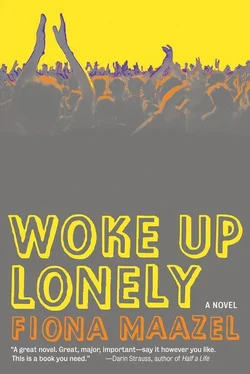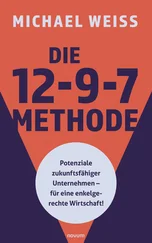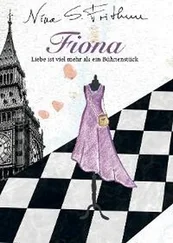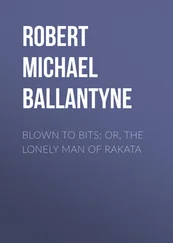“You had lizards.”
“They died.”
We stayed like that for a while, her crying into my chest and me acclimating to the opportunities grown between us with every tear. When we’d both taken our thoughts as far as we could alone, we aired them out. She said I should leave; I said we should marry. She said, “Have you heard anything I’ve been saying?” I said, “Yes. Perfectly.” We set a date for two weeks later.
I’m aware that for Esme, there was a degree of convenience to these nuptials. But that did not have to preclude feelings she might have had for me, or could grow to have in time. I saw the look on her face when she realized I was there to stay. There was incredulity and some pity — I would, after all, do anything for her — but also relief and gratitude. She would not be going through this alone.
In the weeks that followed, I heard more about Yul. He and his wife had escaped from North Korea through China. Crossed the Tumen River from Musan in the northeast territory using a flotation device for children. Traveled four thousand miles through the mountains down the coast, shirking border patrols, opium smugglers, and slave traders, any of whom would have sold his wife as a prostitute and returned him to North Korea, where he’d have been executed or jailed in a concentration camp, some of which are thirty miles long. Bigger than Auschwitz. Possibly more brutal in the day-to-day. They traveled at night, mostly by foot, passing into Vietnam and Laos, over the Mekong and into Thailand.
The Chois were not forthcoming with their experience; I got it all from Esme, in whose pillow talk were breaches of security that could have won Pulitzers for every journalist in America. Yul, though a trained OB, had worked as a propaganda writer when it became clear this was the only way to support his family. To live in Pyongyang and get rations that rivaled in bounty what the government allotted its prize citizens, among them four American soldiers who had crossed the DMZ in the early sixties and lived in Pyongyang ever since.
And here was where Esme fit in. And why, years later, I had good cause to go to North Korea myself. At some point, these four American GIs would get to be of growing interest to the White House, for two reasons. First, a Pentagon memo about the four would be leaked to the press. What an uproar! Were they defectors or prisoners? The Pentagon denied knowledge of any living POWs but did concede to having watched a North Korean movie, Nameless Heroes, in which, lo and behold, the four American soldiers had starring roles as Western agents of evil. For years, the army’s theory on these men was that they were MIA. The North Korean theory was that they were promised body and soul to communist North Korea. Since neither seemed likely, the Americans figured maybe the thing was to get the three (by then one had died) to exercise influence from within. They were movie stars. And since Kim Jong-il was a movie buff with a library of twenty thousand films, and since he’d written volumes on the subject of the movie arts, the thinking was that he would not be able to withstand the allure of four movie stars, never mind the country of their birth or ended allegiance.
Second, one morning, a sub would wash up in the Sea of Japan, empty of its twenty-six North Korean commandos, who were apparently on the lam in South Korea, plotting God knows. The result? Sixty thousand South Korean troops on their tail for fifty-three days, and during this time, did the U.S. have any idea what was going on? Not really. Meantime, the North Koreans had flouted the Nuclear Non-Proliferation Treaty again and again. Did the U.S. have any clue what her intentions were? No on that, too. Wouldn’t it be nice to have people on the inside? You bet. Enter Yul and Yul’s contacts, some of whom were in the film business. Enter Esme, on a mission.
But I am getting ahead of myself. Before all this, Esme and I still had our nights together, when she’d read to me from Kim Jong-il’s manifesto On the Art of Cinema. I had a hard time getting past the foreclosing austerity of the man’s author bio— Kim Jong-il is leader of North Korea. Kim Jong-il succeeded his father, Kim Il-sung, who had ruled North Korea since 1948 —though I did appreciate the singleness of purpose with which I imagined him recording his thoughts. The section titles were no joke. Life Is Struggle and Struggle Is Life. Compose the Plot Correctly. The Best Possible Use Should Be Made of Music and Sound. At no point did you ever get the sense that any of the tome’s fluorescence was lost in translation. I can still picture Esme, whaled out on the bed, pointing a Cheeze Doodle to passages she liked. “Look at this,” she’d say, and laugh so big I could see the snack-food paste around her molars. And so I’d look and read aloud: “Once agreement has been reached in discussion, the director must act on it promptly, firmly basing the production on it and never deviating from it, no matter what happens. If the director vacillates, so will the whole collective, and if that happens, the production will fail.”
“Jesus,” I’d say. “I would hate to be on that guy’s set.”
“Imagine he’s directing your country.”
Mostly, though, when it came to her work, I had no idea what she was talking about. DPRK, IAEA, DMZ, NPT — she’d rattle off this shorthand as though I were in the know, and such was my ignorance that I thought these were clandestine agencies entrusted to my discretion. The first time I heard mention of the IAEA in public, I thought it signaled the toppling of our secret service. But it was just news: the International Atomic Energy Agency, having exposed its inspectors as titular in Iraq, was going full tilt on its evaluation of North Korea’s nuclear sites. As a result, negotiations were breaking down, and the North Koreans would likely not just defy the NPT but leave it altogether.
Esme would say, “If that nut job really does have a nuclear bomb, forget five bombs, we are in a world of shit.” She’d be lying on her side with a pillow between her legs. I’d be lying on my side, too, and so there we were, belly to belly, while she foretold the end of the world and I touched her breasts because her breasts were so lovely that I always wanted an excuse to touch them, and I needed an excuse, since bald-faced admiration fell into a category of motives Esme could not stand. These included admiration without pretext, fear of the unknown, and indifference to situations just because you are unversed in them. I continued to touch her breasts and marvel at the summer palette of her skin — cream and sand, milk and flax — the gossamer above her lips, her sleepy breaths at night, and hair snarled across the pillow. And once she was asleep, I began to study the world in earnest.
For those last months of her pregnancy, our lives were routine. On the weekends, I’d meet with Reese and peerage to discuss ideas. It was a reading group. We assigned each other the usual suspects: Freud and Lacan. Schopenhauer, Hegel, Kant. Maybe Hume. William James. Mostly, though, I went there to lend credibility to what I’d been thinking about on my own. I was looking for quotes.
At issue was the predicament of being alone, which I thought about obsessively, because I was a little confused. I’d found Esme and married, and we were going to have a baby, and so the wasteland of my heart was to have been lush and gay and departed from the isolation whose fix was the Helix mandate. And yet something felt wrong. I still felt unmoored.
In the meantime, I needed a source of income. It turns out that having a child has pecuniary obligations you cannot quantify. It’s not about allotting funds for diapers or food or even higher education, but about needing to afford whatever this baby needs, whatever this baby wants, may she have everything I can give her and all the things I can’t.
Читать дальше












